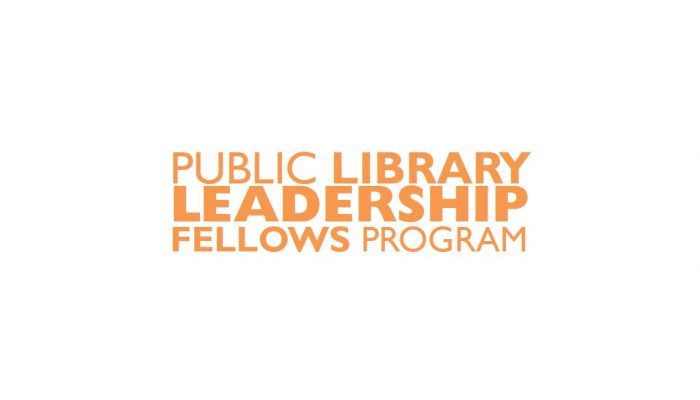Learn about the benefits of constructing a multi-year internship from a MLIS student's perspective.

Public Library Leaders Fellowship Program
As part of the Public Library Leaders Fellowship (PLLF) program, my colleagues and I recently had the opportunity to visit Cuyahoga County Public Library (CCPL), where we spent two days learning about best practices in the area of strategic planning, labour relations, community development, and partnerships. Led by current American Library Association president, Sari Feldman, CCPL is a model for public libraries across North America.
We left CCPL brimming with ideas, everything from new programs and impact measurement, to innovative partnerships.
The Program
A partnership between the Canadian Urban Libraries Council and the University of Toronto’s iSchool, the PLLF program is an innovative executive leadership program that empowers public library professionals to be proactive leaders in the global information environment.
The program combines instructional hours, immersive site visits to model libraries, and practical, back-at-office work. The program also provides an opportunity to showcase leading Canadian public libraries such as Toronto, Edmonton, and Vancouver to librarians across North America. As stated by two of the program’s founding members, Rebecca Raven and Lita Barrie, the PLLF program is about the future of public libraries and the changing communities they serve.
In 2015, the Bill & Melinda Gates Foundation funded research on the state of leadership training programs for librarians worldwide. The resulting report “Cultivating Global Library Leadership” found that participating in a leadership program is transformative for librarians and their communities and recognizes that “tremendous potential exists in the library sector to meet community needs but that it can only be unlocked by effective and visionary leadership.”
The report recommends that all leadership programs need to prepare libraries for 21st century challenges, expand networking opportunities, and target curricula. As a member of the PLLF program, I can attest to the fact that it meets all of these recommendations.
Preparing for 21st Century Challenges
With instructional topics such as advocacy, partnerships, community development, and governance, the PLLF program aims to prepare library leaders for the challenges and opportunities they will face in the 21st century. One of the challenges currently facing public libraries is how to better measure the impact libraries have on their communities. Traditionally we have relied on visits and circulation as measures to prove our importance. While usage statistics are important, they are no longer enough to demonstrate relevance to funders. In learning best practices in impact measurement from leading library systems such as CCPL, program participants are able to implement some of those same measurements within their own libraries.
Target Curricula
Another great aspect of the PLLF program is that it focuses solely on public libraries, keeping all content relevant to public library leaders and the challenges and opportunities they face. One instructional unit focuses on advocacy, partnerships, and collaborations. In this unit, participants assess the potential of partnerships and relationships that advance library mission, leverage library strengths, and position the library as an asset. This is relevant learning for any library leader today as we strive to meet the needs of our community.
Networking Opportunities
Perhaps the best feature of the PLLF program is the networking opportunity it affords. Participants progress through the program as a cohort, learning together in a safe environment. These informal networks have created a community and support system that participants will keep throughout their careers. PLLF also presents opportunities to network with library leaders across Canada and the U.S. during site visits. The instructional units are also taught by public library CEOs and experts, such as Sandra Singh, Ken Roberts and Wendy Newman. Program participants have the unique opportunity to learn from those that are active in the profession and are widely recognized for their stewardship.
Impact and Outcomes
With the third iteration of the PLLF program set to commence in the fall of 2016, public library CEOs should consider this program an investment in succession management. PLLF has demonstrated success in preparing mid level managers for executive leadership with many of its participants going on to assume Director or CEO level positions in public libraries, including Rebecca Raven, CEO of Brampton Public Library, and Pilar Martinez, CEO of Edmonton Public Library.
As I reach the end of this program, I am extremely proud to be part of a community of library leaders who are better equipped to meet the challenges and opportunities faced by Canadian public libraries and the communities we serve. I am truly inspired and excited by what lies ahead.
To learn more about the Public Library Leaders Fellowship Program, please visit the websites of CULC or the iSchool, University of Toronto.
Michelle Sawh is the Manager of Service Delivery at the Markham Public Library. She can be reached at msawh [at] markham.library.on.ca.



